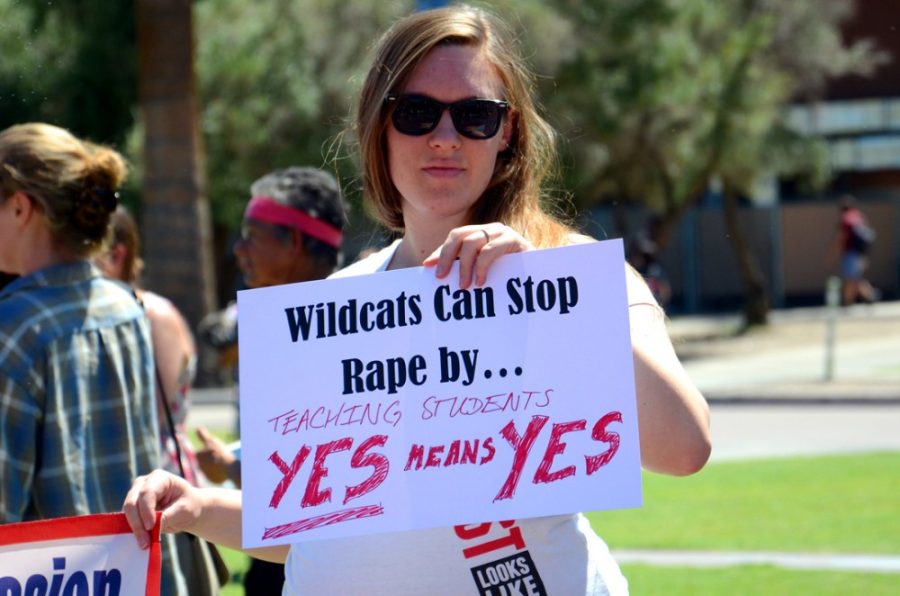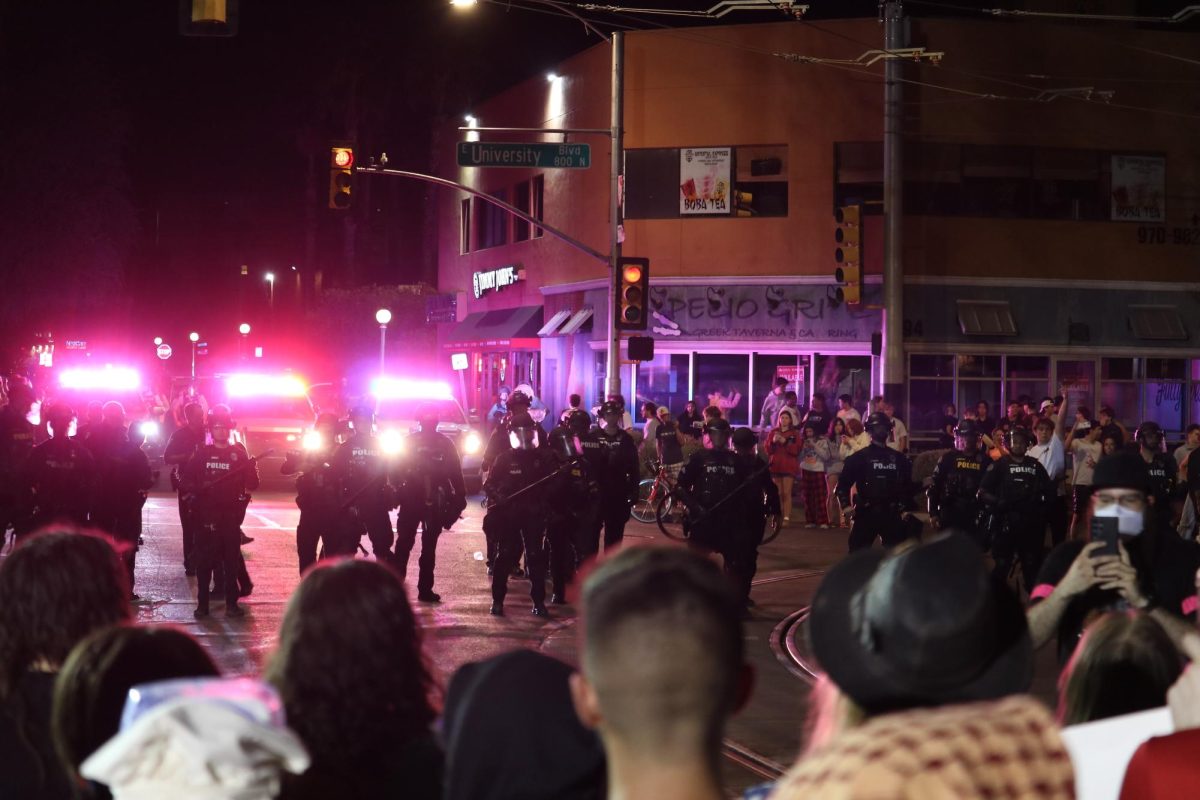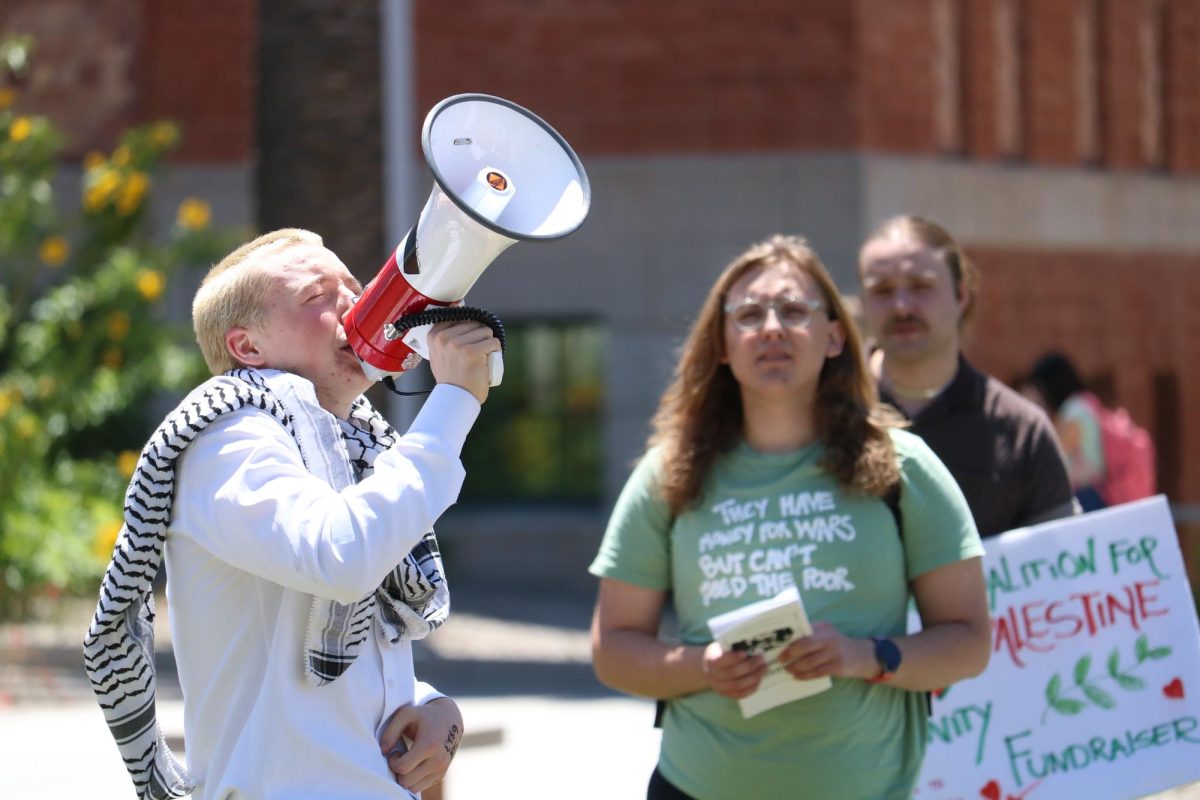California Gov. Jerry Brown recently signed the SB 967 “Yes Means Yes” bill into law, which redefines what constitutes affirmative consent prior to and during sexual activity. UA organizations are using this law as a model to address sexual assault.
California is the first state to demand each higher education school in the state receiving government funds to uphold the “Yes Means Yes” law regarding sexual assault and other offenses.
“Yes Means Yes” requires each party to provide affirmative consent to engage in any sexual activity. An absence of consent is no longer a legally debatable consent. Without the “Yes Means Yes” law, if the victims of sexual assault didn’t verbally say “no” before or during said assault, the assault becomes a matter of debate.
“Yes Means Yes” and the UA 2014 Campus Safety, Security and Fire Safety Report updated sexual consent to protect individuals who experience fight, flight or freeze.
Organizations on the UA campus are using California’s “Yes Means Yes” law as a way to educate about sexual assault and consent.
Jenny Nirh, assistant director for UA Greek Life, said in email that mutual consent and sexual assault is a topic addressed among greek chapters by requiring members to take an interactive online module course. Nirh said the women in Greek Life are specifically educated on consent during the recruitment process as well.
The Residence Life education on sexual assault includes programs about consent, assault, reporting incidents and inviting UA health professionals to provide more education for residents and staff, said Residence Life assistant director of marketing Dana Robbins-Murray in an email.
Arizona Rep. Ethan Orr (R-Tucson), a UA graduate and former professor, said he recalls the problems surrounding sexual assault while he was attending the UA.
As a student, Orr initiated increasing blue light phones around campus, taught free self-defense courses for students and walked the campus with peers and faculty at night to add necessary lighting around campus during a time UA was analyzing different aspects of sexual assault.
Orr said he believes in order to understand why sexual assaults happen, we must understand the root cause. He said that creating a culture in which students respect themselves, each other and women is a crucial step on eradicating this crime on campus.
Orr isn’t the only member in Arizona legislature with personal connections and strong convictions regarding student safety.
Arizona Rep. Lela Alston (D-Phoenix) graduated from the UA in 1967 and said she worries for students’ safety.
“University campuses should be a safe place,” Alston said. “One of my granddaughters is going to an out-of-state university. Every parent has an expectation their child’s physical safety will be ensured.”
Alston said that she thinks the “Yes Means Yes” law and its similarities to UA’s new sexual assault definitions are a “really a good step forward.”
Orr said he appreciates the law’s clearer approach to define what it really is to consent. He said he believes the Arizona Board of Regents could adopt the law for Arizona universities, but that there is still more to see with how the law will be dealt with on campus and in court.
“It is unacceptable to treat people in this way,” Orr said. “Assault is assault. It is a crime against a human being — a crime against the state — and it needs to be prosecuted as such. It’s criminal conduct.”
_______________
Follow Anna Ludlum on Twitter.









